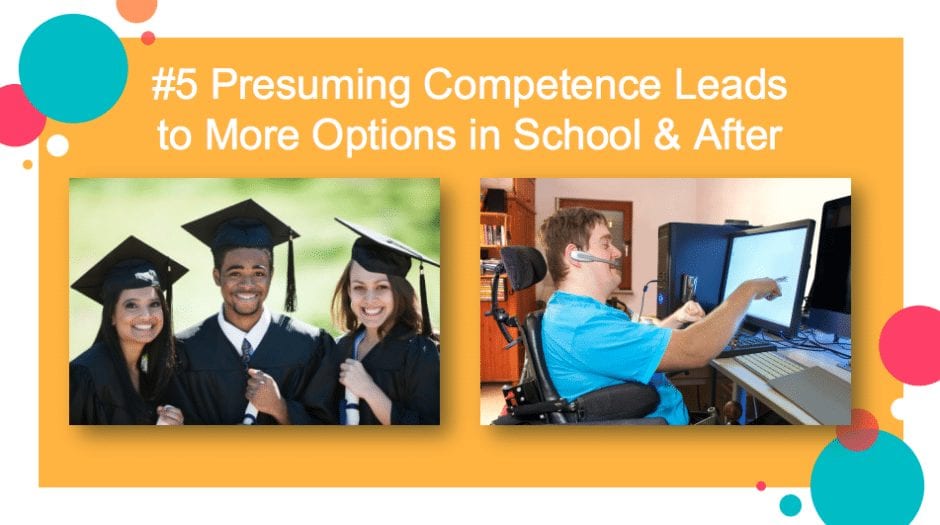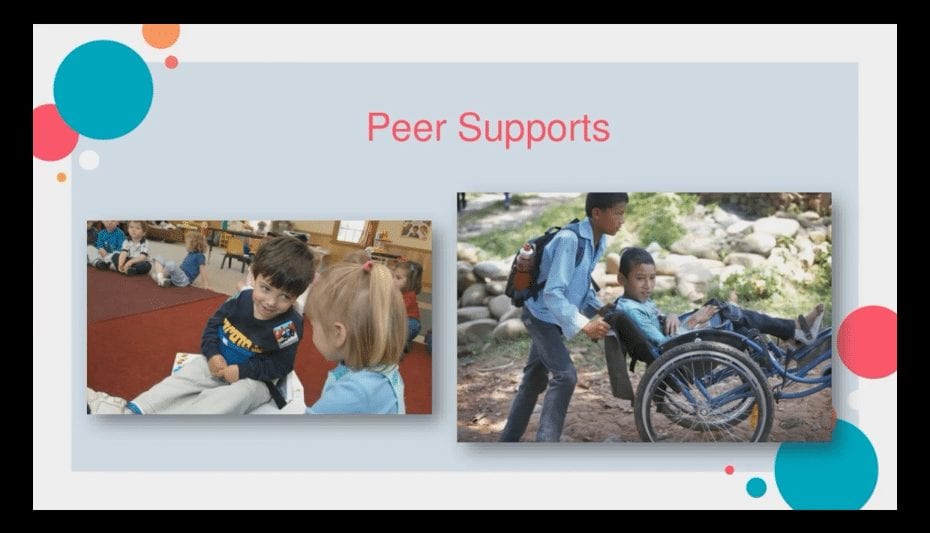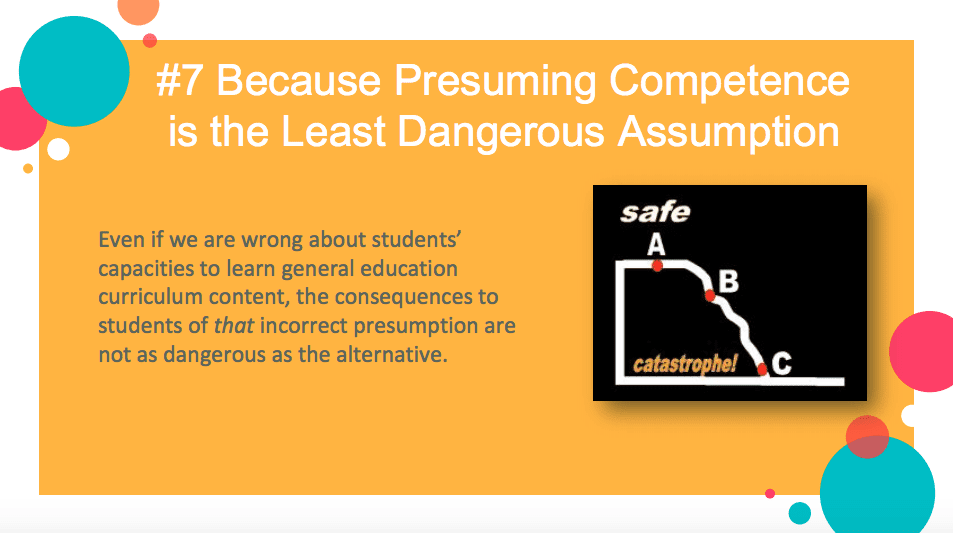Why Presuming Competence is Essential for True Inclusion
Too often, an “inclusive education” for students with complex support needs means helping them take part in a single class activity before they go off to a different classroom, or focusing on a single learner while other similar students remain on the outside.
Cheryl M. Jorgensen, Ph.D., an inclusive education consultant and co-founder of the National Center on Inclusive Education, offered participants in the recent edWebinar, “Inclusion is More Than ‘Just Being In,’” a new way to define the term. She explained that inclusion should not be a practice but should be a transformational educational philosophy based on social justice principles, where the first tenet is that all students are presumed competent.

“We construct students’ competence by providing them with a way to communicate all the time every minute of the day about the same things that their peers without disabilities are communicating about,” said Jorgensen.
Over her tenure in the classroom, Jorgensen developed seven reasons why presuming competence is essential.
- Expectations matter: When teachers set appropriate learning goals for students and expect growth, they treat students in a different manner than if they expect them to fail.
- Traditional assessments are flawed: These assessments measure and show what students can’t do right at that moment rather than what they could do with the proper supports.
- Science without value causes harm: History shows that making decisions with the science at hand today without values can be dangerous to students’ education, such as institutionalizing students with disabilities.
- Research on access to communication: Research also shows that when students have a reliable means of communication, the initial assessments of intelligence have often been proved wrong.
- Presuming competence leads to more options in school and after: In the Individualized Education Program (IEP), parents and students should share their vision of the future to help teachers form individualized learning goals.
- Presuming incompetence could be harmful, especially if the educator is wrong: To guard against this, IEPs should focus first on a student’s strengths and not solely on the disabilities.
- Presuming competence is the least dangerous assumption because the consequences are not as dangerous as the alternative.
It is not enough, though, to presume competence, commented Jorgensen. Students also need to be valued members of the classroom. This means students attend the school they would if they did not have a disability, and within the classroom, there should be a natural proportion of students with and without a disability.
Most important, membership is characterized as full participation. In other words, the student’s name is on all class lists and job lists, they participate in whole-room discussions and in small-group projects, and they are called on by the teacher as frequently as other students.
Finally, all students should have reciprocal social relationships. “When you boil it down, it means: I count. I belong. I have friends,” said Jorgensen.
This broadcast was hosted by edWeb.net and sponsored by Brookes Publishing.
This article was modified and published by eSchool News.
About the Presenter
Cheryl M. Jorgensen, Ph.D. is an inclusive education consultant and co-founder of the National Center on Inclusive Education. Dr. Jorgensen is the author of The Inclusion Facilitator’s Guide and The Beyond Access Model; presents at state, national, and international conferences; and provides consultation throughout the U.S. She authored a manual for the National Education Association on inclusion of students with autism. In 2008, Dr. Jorgensen received an award from the National Down Syndrome Congress for her contributions to inclusive education research.
Join the Community
Teaching All Students is a free professional learning community to provide a space for school professionals to discover and share practical strategies for inclusive classrooms.






Comments are closed.